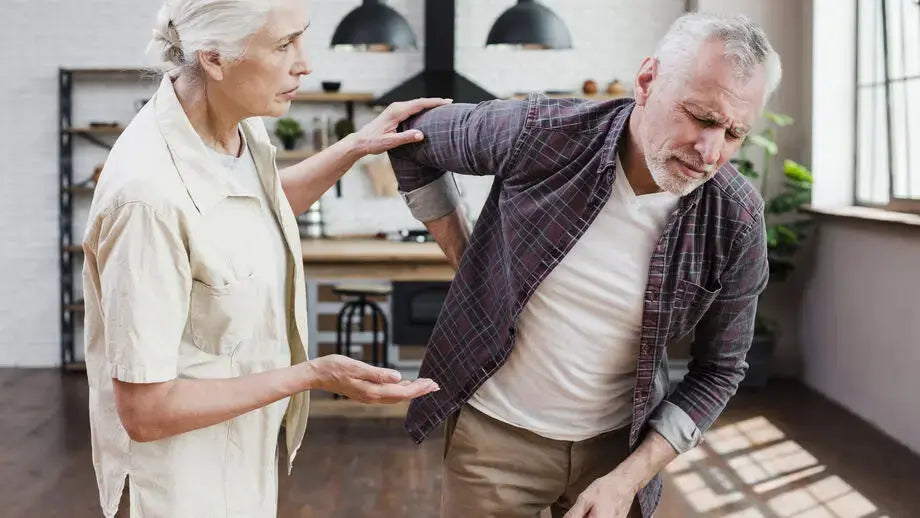First of all, where are your kidneys and what do they do?
Your kidneys are fist-sized, bean-shaped organs that sit at the back of your body. More precisely, they live at the lower end of your ribcage to the left and right of your spine. There very important for our health and wellbeing as their main job is it to filter unwanted waste out of the blood and turn it into urine so our bodies can get rid of it.
So, how do I spot kidney pain?
As we’ve already mentioned, kidney pain gets mistaken for back pain quite often and sometimes it might be impossible to tell them apart without an examination by your GP. However, in most cases, there are certain pointers that will tell you whether your kidneys are hurting or whether you’ve just pulled a muscle. For example, kidney pain sits higher in your back than most back pain and most often only affects one kidney. This means you’ll likely feel the pain in your upper back, either to the left or to the right of your spine. The pain you’re feeling will also be much deeper than your average backache and, depending on what’s causing it, it will be different. For example, a kidney stone will cause a sudden, sharp pain whereas an infection likely comes with a constant, dull ache. Generally, the pain will not get any worse, but it also won’t go away again without treating its root cause. If left untreated, the pain might spread to other areas of your body like your abdomen or groin and can also cause additional symptoms.
What are the symptoms of kidney pain?
We’ve already briefly mentioned this, but the most common symptom of kidney pain is either a dull, deep ache or a sharp, sudden pain on the right or left side on your spine or in your sides. Other symptoms that come with it can include:
- Blood in urine
- Pain or burning when you go for a pee
- Fever and chills
- Having to pee more frequently
- Pain that spreads into your groin
- Nausea and vomiting
What causes kidney pain?
Generally speaking, when your kidneys hurt there’s something wrong with them and it should always be investigated by a healthcare professional to ensure you’re getting the right treatment. Most commonly, kidney pain is either caused by a kidney infection or a kidney stone that’s moved into your ureters (these are the tubes that connect your kidneys to your bladder, by the way). There are other possible reasons for your kidney pain, however:
- There’s a cyst in your kidney that’s getting bigger or has ruptured.
- Hydronephrosis: Swelling in your kidney because urine is backing up and it is filling up.
- Bleeding into one or both of your kidneys.
- Renal vein thrombosis: A blood clot in a vein that’s connected to your kidney.
- You have a cancerous mass in your kidney. This usually only becomes painful when the mass gets large.
- Polycystic kidney disease: This is an inherited condition which means that multiple cysts are growing in your kidneys and damage them.
When you should seek help
Since kidney pain always indicates that there’s something wrong, you should always contact your GP if you suspect that your ache or pain stems from your kidneys. If your pain is severe and came on very suddenly, it’s even more important that you contact a healthcare professional as this is often caused by something serious like renal vein thrombosis or bleeding in your kidneys and requires emergency treatment. If treatment for your kidney pain is delayed, this can lead to kidney failure which means that your kidneys aren’t working properly anymore.

